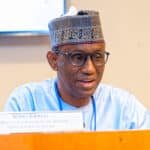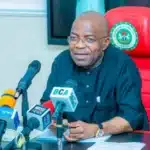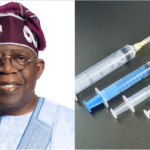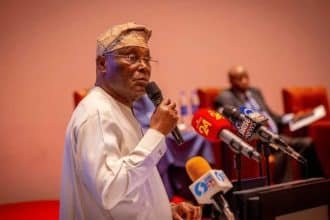The federal government has stated that around 88.4 million Nigerians live in abject poverty.
Mr. Temitope Fadeshemi, Permanent Secretary of the Federal Ministry of Agriculture and Food Security, announced this on Wednesday during the delivery of farm inputs and empowerment materials to 250 smallholder farmers in Kaduna.
Fadeshemi was represented at the occasion by Bashir Abdulkadir, Director of the Ministry’s Department of Extension Services.
He said, “The level of poverty in Nigeria is alarming. An estimated population of 88.4 million in Nigeria is living in extreme poverty.
”The number of men living on less than $1.90 a day in the country reached around 44.7 million, while the count was at 43.7 million for women.
”Overall, 12.9 per cent of the global population in extreme poverty was found in Nigeria as of 2022.
”This is why the Federal Government, through the Federal Ministry of Budget and National Planning, in collaboration with FMAFS, is making conscious efforts at reducing the spate of poverty across the country.”
Farm input and empowerment tools were sent to farmers as part of the National Poverty Reduction with Growth Strategy.
Fadeshemi said: “I am delighted to remind you that NPRGS, in collaboration with the Federal Department of Agricultural Extension Service (FDAE), has diligently enumerated and validated approximately 250 farmers for participation in this transformative programme.
”These farmers are not just the backbone of our agricultural sector; they are the heartbeat that forms the heartbeat of our nation’s prosperity.
”The NPRGS reflects our government’s dedication to addressing poverty at its roots, emphasising the pivotal role agriculture plays in economic growth and development.
”Through initiatives like today’s training and empowerment programme, we are sowing the seeds of positive change, ensuring that smallholder farmers have the knowledge, resources, and support needed to thrive in an ever-evolving agricultural landscape,” he said.
Fadeshemi stated that the plan was more than just an investment in agriculture; it was also an investment in the nation’s future.
He said: “As we equip these farmers with the tools to enhance productivity, improve resilience, and embrace sustainable practices, we are laying the foundation for a more resilient and prosperous agricultural sector.
”I commend the efforts of the FDAE for their meticulous work in identifying and validating deserving farmers for this programme.
”The collaboration between our Ministry and the National Poverty Reduction with Growth Strategy (NPRGS) exemplifies the power of synergy in achieving meaningful impact.
”To the participating farmers, I say this: your role is paramount in shaping the trajectory of our nation’s agricultural success.
”As you undergo this training and empowerment journey, absorb the knowledge, hone your skills, and apply the insights gained to elevate your farms and communities.”
According to the permanent secretary, farmer success is inextricably linked to national wealth, and by working together, we can generate a ripple effect that touches every part of our beautiful country.
”Let us embrace this opportunity to build a future where smallholder farmers are not just beneficiaries of progress but active contributors to our nation’s growth.
”With determination, collaboration, and a shared vision, we can transform challenges into opportunities and empower our agricultural sector to lead the way towards a more resilient and prosperous Nigeria.
”It is my hope that this program may be the catalyst for a brighter, more bountiful future for all.”
Dr. Timkat Nanfa, the ministry’s State Coordinator, congratulated the Federal Government for selecting the state as a beneficiary of the scheme.
He advised the attendees to make good use of the empowerment, stating that inputs will aid them with their agriculture operations while also combating poverty.
He listed the products as 175 bags of organic fertilizer, 175 sprayers, 65 bags of maize seeds, 71 bags of rice seeds, 14 tins of tomato seeds, 14 tins of pepper seeds, Okra seeds tins, 1,000 chicken chicks, 40 bags of poultry feed, and 50 bags of fish feed, among other things.









